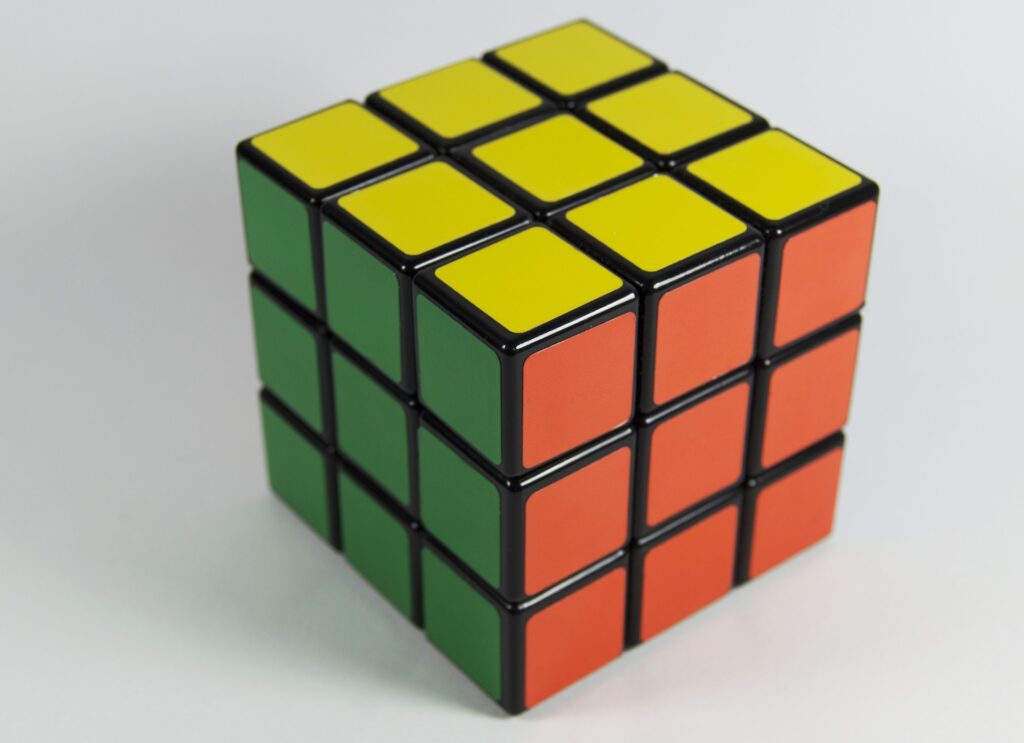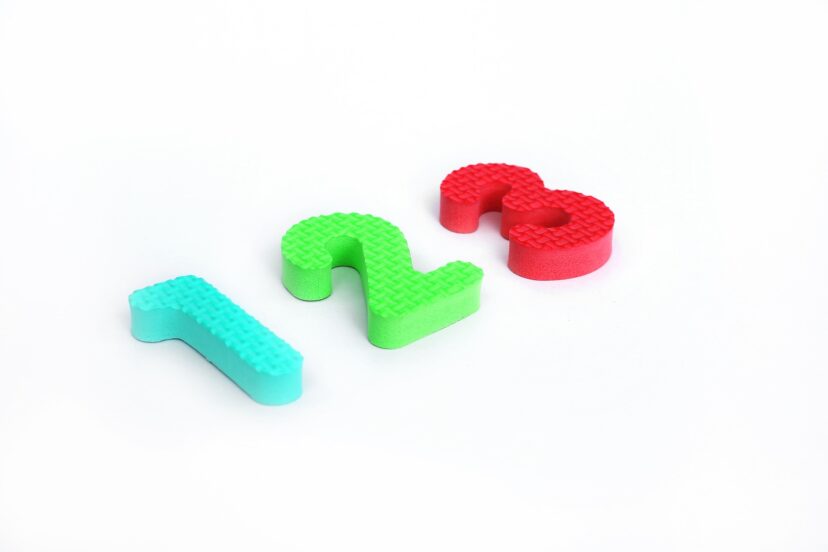Cool Math Games: The Number 1 Secret Sauce to Making Math Fun for Kids
Cool Math Games: Introduction
Hey, everyone! Raise your hand if you remember the dread that came over you when your math teacher wrote equations on the board that looked like ancient hieroglyphs. 🙋♀️🙋♂️ But wait, don’t disappear into your gloomy math memories just yet. What if I told you that math can be, dare I say it, fun? Yes, you heard me right! Forget about the drudgery of your past and let’s dive into the magic world of cool math games. You won’t just be crunching numbers; you’ll be cracking smiles too!
The Genesis of Cool Math Games
Ah, the inception moment! Picture this: You’re stuck between the Pythagorean theorem and your intense desire to just play video games. But what if you could do both? Enter cool math games, a concept born out of the pure frustration that traditional math often isn’t engaging. It’s like someone looked at a textbook and said, “This needs more dragons and spaceships!” Cool math games are the ketchup to your fries, making the somewhat bland world of mathematics suddenly pop with flavor.
Why the Fusion Works
Ever try to solve a math problem while dodging asteroids in a spaceship? No? Well, you should! The secret sauce here is engagement. Your brain is more likely to grasp complex topics when you’re fully immersed in what you’re doing. It’s like trying to catch a fish barehanded—when you’re completely engaged, you’ll nab that slippery sucker.
What Makes a Math Game “Cool”?
Sure, a math game can be educational, but let’s be real: if it isn’t cool, it’s just glorified homework. You’d probably get more engagement from a sloth on sleeping pills than a bored kid faced with a dull math game. So, let’s dig deeper into what elevates these games from “meh” to “wow!”
The Aesthetics: More Than Just a Pretty (Inter)face
Have you ever been so captivated by the colors of a sunset that you forgot about everything else? That’s the kind of pull the aesthetics of a game should have. And by aesthetics, we mean the design, the visuals, the sound—everything that stimulates your senses.

Graphics
Let’s start with graphics. Imagine playing a game where the numbers and figures look like they were scribbled by a 2-year-old. Not inspiring, right? Now imagine a game where the numbers burst into tiny fireworks when you solve a problem, or where every correct answer transforms a barren landscape into a lush forest. You’d be so engrossed that you’d forget you’re learning—now, that’s how you design a game!
Soundtrack
You might think, “Why does a math game need a soundtrack?” Trust me, it does. Ever been to a party with no music? It’s awkward. Now, if a game had a background score that went from calm to exciting as you progressed, you’d likely get more pumped up to solve those equations. A great soundtrack can turn even the simplest addition problem into a pulse-pounding adventure.
User Interface
Finally, the user interface. The best games have a UI that’s so intuitive, you feel like you’ve been using it your entire life. When a game minimizes the friction between you and your goal, you get a smoother, more enjoyable experience. Think about it like this: the interface should be as clear as your grandma’s reading glasses. You don’t want to spend half your time navigating confusing menus when you could be obliterating algebraic expressions!
Complexity and Simplicity: The Perfect Equation
So, what do we want? To be challenged! When do we want it? Uh, not all the time, please. The best games find a sweet spot between making you sweat and giving you a breezy walk in the park.
Difficulty Levels
A good game starts off simple, kind of like your first tricycle ride. But as you pedal through, the training wheels come off and suddenly you’re navigating hills and valleys. The game needs to progress at a similar pace, introducing more complex concepts as you master the basics.
Adaptive Learning
The cream of the crop in cool math games adjust to your learning curve. Struggling with fractions? The game may offer more practice until you’re comfortable enough to move on. Aced geometry? You’ll find yourself whizzing through more challenging problems faster than you can say “Isosceles triangle.”
Burstiness and Perplexity: The Dynamic Duo
You’re probably still scratching your head at these terms, but bear with me. Burstiness and perplexity add the much-needed variety and unpredictability to the gaming experience.
Burstiness: The Roller Coaster Effect
Imagine a roller coaster that only goes up at a 10-degree angle for the entire ride. Yawn! Burstiness is the game’s ability to throw you for a loop just when you thought you had it figured out. One minute you’re sailing smoothly, and the next, you’re thrown into a whirlpool of mind-bending equations. This keeps your brain on its toes, enhancing both learning and enjoyment.
Perplexity: The Element of Surprise
Think of perplexity as the wild card, the joker in the pack. Just when you think you’ve mastered a topic, the game throws a curveball—an unexpected challenge or a different way to solve a problem. It’s like a pop quiz, but one that you’re actually excited about. The unpredictability keeps you engaged, much like how a plot twist keeps you glued to a movie.
So there you have it—cool math games are not a one-size-fits-all sweatshirt but a custom-tailored suit that adjusts to your learning needs while keeping the style quotient high. Whether you’re an aspiring mathematician or someone who still counts on their fingers (no judgment), there’s a perfect game out there just waiting for you to hit “Play.”

How to Choose the Right Cool Math Game: Your Personalized Guide
Alright, let’s say you’re now as excited as a dog in a bacon factory about the whole “cool math games” thing. The big question is, how do you pick the right one? After all, what’s life without options? And boy, do you have options—from time-traveling arithmetic to zombie-infested geometry! So, let’s unpack the most critical factors to consider when choosing your perfect match in the mathematical gaming universe.
Age Appropriateness: More than Just a Suggestion
Let’s get one thing straight: No one wants to feel like they’re stuck in a toddler’s playpen when they’re gunning for some serious intellectual stimulation. Conversely, you don’t want your 7-year-old cousin bawling her eyes out trying to understand trigonometry, right?
Kids’ Games
If you’re a parent or have younger siblings, look for games that have bright colors, straightforward rules, and simple objectives. The learning curve should be as gentle as a hill, not a mountain. Make sure it tackles foundational math skills like addition, subtraction, multiplication, and division. Bonus points for games that have cute mascots!
Adult Games
For the grown-up crowd, the choices get broader. You can choose from games that delve into higher mathematics like algebra, calculus, and even quantum mechanics (if you’re feeling brave). These games often skip the candy colors and opt for more subdued tones. They’ll also throw in real-world applications. Who knew you’d need calculus to save a virtual world from imminent destruction?
Subject Matter: Your Favorite Flavor of Math
What’s the first thing you do at an ice cream shop? You decide your favorite flavor. Do the same when you’re picking a math game. Get specific about what areas you want to focus on.
Core Subjects
Are you looking to conquer fractions? Or perhaps you want to swim in the deep end of the pool with geometry? Each game usually has a specialty or focus area. Choose a game that aligns with the math skills or topics you want to develop or polish.
Advanced Concepts
If you’re further along in your mathematical journey, maybe you’d want to explore the realms of calculus, algorithms, or statistical analysis. Advanced-level games will often simulate real-world problems you’ll need to solve using complex formulas. It’s not just about solving equations; it’s about applying math to scenarios that could be pulled from a NASA mission. Seriously, who wouldn’t want to calculate the trajectory for a Mars Rover?
Reviews and Ratings: The Good, The Bad, and The Ugly
In a world where even your grandma is likely to leave a Yelp review for her local knitting club, there’s no excuse for not doing a little recon.
Customer Reviews
Dig deep into the customer reviews. These are the unfiltered thoughts of people who’ve taken the game for a spin. Look for recurring themes—are people saying the game crashes often? Or perhaps they’re raving about how much their math skills improved. Pay special attention to reviews that closely match your needs or skill level.
Expert Reviews
While customer reviews are great, expert reviews can offer a more in-depth analysis. They can tell you about the educational efficacy of the game, the quality of its design, and how well it holds up over time. If an educator or a gamer you trust recommends a particular game, that’s a glowing endorsement.
So, folks, that’s the insider’s guide to choosing the right cool math game for you. With these tips, you’ll be more equipped to navigate the vast seas of gaming options, and you’ll do so with the precision of a mathematician. Which, after playing these games, you just might be!

Educational Benefits of Math Games: More Than Just Fun and Games
Let’s put this simply: math games aren’t just digital babysitters. They pack an educational punch. With each click, swipe, or joystick maneuver, you’re not just earning points; you’re also cementing mathematical concepts. Whether you’re refining basic arithmetic skills or cracking complex algorithms, these games function as brain gyms. For kids and adults alike, the right math game can significantly boost problem-solving skills and even improve test scores. What’s not to love?
Social Aspects of Math Gaming: From Lone Wolves to Pack Players
If you think math games are a solitary affair, think again. Today’s math games often come with a rich social component. You can team up to solve complex puzzles or compete on global leaderboards. That sort of competition can turn math, often seen as a “boring” subject, into a thrilling challenge. Friends that calculate together, stay together—right?
The Role of Parents and Educators: The Unseen Game Masters
Parents and educators have a big role to play in the math gaming scene. They can curate a list of age-appropriate games and even incorporate them into learning modules. It’s like mixing vegetables into a delicious smoothie—the kids won’t even realize they’re learning. Plus, math games can be an excellent tool for teachers to break the monotony of traditional teaching methods. Some games even provide analytics to track performance over time. Now, that’s what we call level-up education.
Free vs. Paid Math Games: The Great Debate
Think of free games as the appetizers—they give you a taste but leave you wanting more. They’re great for a trial run but often come loaded with ads or in-app purchases. On the flip side, paid games are like a five-course meal: comprehensive and satisfying. Investing a few bucks could mean access to a well-designed, ad-free gaming environment loaded with complex challenges. The question is, are you up for a quick snack or a full-on feast?
Best Platforms for Math Games: Where the Magic Happens
Whether you’re a computer wizard, a mobile gamer, or still clinging to your old-school consoles, each platform offers a unique gaming experience. Browser-based games often require no downloads and can be played on-the-go. Apps are perfect for learning in short spurts and are optimized for touch interfaces. Consoles might not be the first choice for educational games, but they offer a more immersive experience. Pick your potion based on your device preference and lifestyle.
How to Avoid Gaming Addiction: Because Too Much of a Good Thing…
While math games are educational, let’s not forget they are still games. And games can be addictive. It’s easy to spiral into a gaming marathon and neglect other aspects of life. To avoid this, set time limits and stick to them. Ensure you take breaks and mix other learning methods into your routine. A balanced approach is the key to reaping the benefits without suffering the pitfalls.
Cool Math Games: Conclusion
Selecting the right math game isn’t as simple as choosing between chocolate and vanilla. It’s more like crafting the perfect milkshake with multiple layers of flavors and toppings, calibrated to your unique taste. The process involves a blend of age appropriateness, subject matter focus, and reliability conveyed through reviews and ratings. In short, it’s a customized journey, and the beauty is, there’s a game tailored for everyone—kids, adults, beginners, and mathletes alike.
You have the tools and know-how to make a calculated decision that aligns with your needs and interests. Whether you’re a parent looking to introduce your child to the wonders of math or an adult aiming to conquer calculus, the perfect game is out there. All it takes is a little digging and thoughtful consideration. With your newfound wisdom, you’ll not only find a game that’s educational but also one that will keep you hooked, making the process of learning math not just tolerable but downright enjoyable.
Cool Math Games: FAQs
- Why is age appropriateness so important in choosing a math game?
The age factor isn’t just about keeping content suitable; it’s also about developmental appropriateness. Kids’ brains are wired differently than adults, absorbing information in a way that’s aligned with their cognitive development. A game too advanced might overwhelm a child, while a game too simplistic can bore an adult to tears. In either case, the educational potential is squandered.
- Is focusing on a specific subject matter really necessary?
Absolutely. Much like you wouldn’t study French if you were going to visit Italy, you wouldn’t want a game focused on geometry when you’re struggling with algebra. Picking a game that targets the subject you wish to excel in or explore increases the chances of mastering that particular area.
- How much weight should I put on reviews and ratings?
Think of reviews and ratings as your scouting party in an unknown land. They’re crucial but not the only thing to consider. While a game may have high ratings, delve into the ‘why.’ What did the reviewers enjoy? Is that what you’re looking for? Likewise, a lower rating doesn’t always mean the game is bad; perhaps it just didn’t meet some people’s expectations. So, examine reviews critically and make them a part of your overall assessment.
- Are math games effective for learning?
You bet! Studies have shown that gamification significantly enhances engagement and retention. When you’re invested in a game, you’re naturally inclined to understand its mechanics—which, in this case, are mathematical concepts. In essence, the game acts like a Trojan horse, smuggling in learning under the guise of fun.
- Can I rely solely on math games for learning math?
While math games are an excellent supplement to traditional learning methods, they aren’t a replacement for structured education. Imagine trying to become a bodybuilder solely by drinking protein shakes. You still have to hit the gym! Similarly, games can reinforce and enrich what you’re learning in a formal setting but shouldn’t be your only avenue for mastering math.




